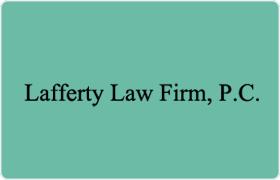Mount Pleasant Collection Lawyer, Tennessee
Sponsored Law Firm
-
 x
x

Click For More Info:
-
Lafferty Law Firm, P.C.
1321 Murfreesboro Pike Suite 521 Nashville, TN 37217» view mapBankruptcy & Debt Over 30 Years Of Experience
Susan S. Lafferty is a CPA and Attorney who enjoys helping people with financial problems. She is located in Nashville, TN where she has lived for over 30 years.
800-936-9071
Not enough matches for Mount Pleasant Collection lawyer.
Below are all Mount Pleasant Bankruptcy & Debt lawyers.
James Robert Harlan
Consumer Bankruptcy, Commercial Bankruptcy, Bankruptcy Litigation, Bankruptcy & Debt
Status: In Good Standing *Status is reviewed annually. For latest information visit here Licensed: 43 Years
Aurora Dawn Harris
Litigation, Elder Law, Contract, Credit & Debt
Status: In Good Standing *Status is reviewed annually. For latest information visit here
Beth A. Dunning
Litigation, Corporate, Administrative Law, Credit & Debt
Status: In Good Standing *Status is reviewed annually. For latest information visit here Licensed: 30 Years
Bob Robert Grefseng
Juvenile Law, Bankruptcy, Banking & Finance, Business & Trade
Status: In Good Standing *Status is reviewed annually. For latest information visit here Licensed: 44 Years
Brendan Cole Babcock
Intellectual Property, Wills & Probate, Business, Reorganization
Status: In Good Standing *Status is reviewed annually. For latest information visit here Licensed: 18 Years
Bryan Clark Penland
Criminal, Personal Injury, Bankruptcy
Status: In Good Standing *Status is reviewed annually. For latest information visit here Licensed: 19 Years
Christopher Norwood King
Real Estate Other, Real Estate, Adoption, Bankruptcy
Status: In Good Standing *Status is reviewed annually. For latest information visit here Licensed: 12 Years
Christopher Vance Sockwell
Child Custody, Criminal, Bankruptcy, Personal Injury, Government
Status: In Good Standing *Status is reviewed annually. For latest information visit here Licensed: 32 Years
 Susan Lafferty Nashville, TN
Susan Lafferty Nashville, TN Practice AreasExpertise
Practice AreasExpertise